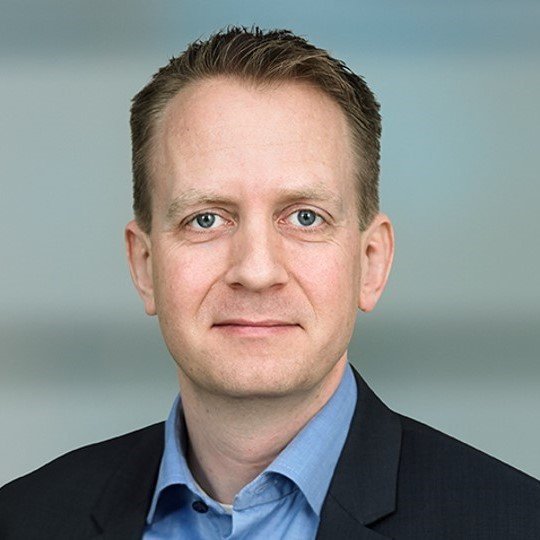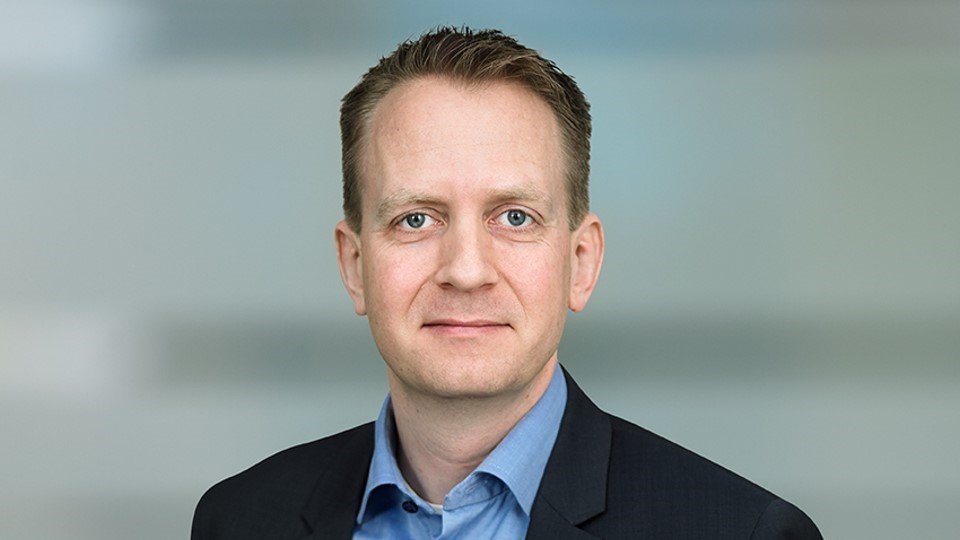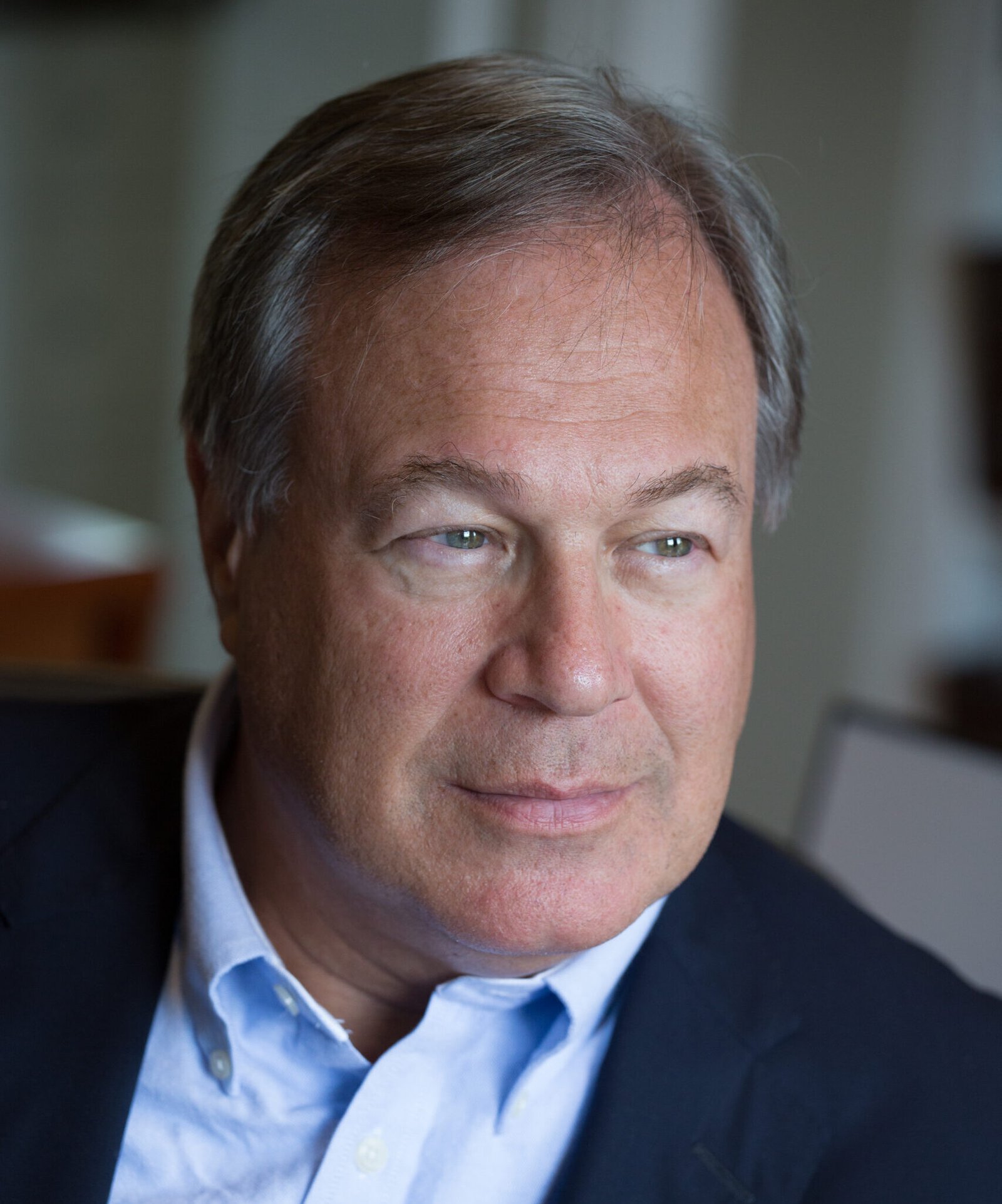I recently went one-on-one with ECCO executive Jens Hovgaard Jensen. Jens is ECCO’s Director of People & Culture – Americas and previously served as the Chief People Officer of Girteka Logistics and the Chief Human Resources Officer of Maersk Supply Service.
Adam: Thanks again for taking the time to share your advice. First things first, though, I am sure readers would love to learn more about you. How did you get here? What experiences, failures, setbacks, or challenges have been most instrumental to your growth?
Jens: We hear this all the time — and I do in my profession too — that careers rarely go as planned. I’m actually a high school dropout. I didn’t know what I wanted to do, so I joined the military to get some structure and direction. And I really liked it. It turned out I was good at it, so I ended up staying for about 10 years — in and out, with officer training in between. I wasn’t the top of the class, but I always tried to be in the upper third. That was kind of my mindset: maybe I can’t beat the best, but I can make sure I’m not last.
But back then, Europe was at peace and governments were downsizing their militaries. Career prospects got worse and worse, so I resigned. I had no real plan. I just knew I didn’t want to keep doing what I was doing. So I sent an unsolicited application to Maersk, the Danish shipping and logistics company. This was 2007, during the war for talent. They were short on HR people, and they assessed applicants based on potential, not background. That’s how I got in.
My military experience helped — resilience, structure, working long hours. I was getting up at 5, working until 6, dinner with my girlfriend, then back to work until 10. I supplemented with education: a graduate certificate, a diploma, later an MBA. Maersk co-sponsored much of it. I ended up spending 13 years there, eventually as CHRO in their offshore oil and gas division, Maersk Supply Service.
Then the pandemic hit. Oil prices went negative. I sat down with our CEO and said, “You can’t save your way out of this without cutting at the top.” I basically said, “You don’t need me,” and stepped down.
After that, I joined a logistics company in Lithuania — 22,000 employees — and within a month, the country declared a state of emergency because of the Belarus border crisis. Then the war in Ukraine broke out. 25% of our revenue came from Russia-Europe trade. We were recruiting over 6,000 Ukrainian drivers a year. Suddenly, we couldn’t.
So it was full-on crisis management. And again, resilience helped. I could’ve stayed, but then life happened — my girlfriend got pregnant. We love Lithuania, but there’s a big language barrier, especially in healthcare. So I resigned. Around that time, a former Maersk boss called me. ECCO was looking for someone to help turn around the Americas region. I said, “It just so happens I’m looking too.”
It’s a smaller role, but high complexity — turnaround, transformation, system implementation, rebuilding the organization. It also came with a green card sponsorship. Sometimes you’ve got to take a step sideways or even down to move forward. I’m excited to build something here, and later we’ll see — whether it’s a global ECCO role or something else in the U.S. market.
Adam: What do you believe are the biggest challenges that HR leaders and people leaders face today and how can they navigate them?
Jens: There are many. Most organizations go through a curve. HR started out as admin and compliance maning payroll and policies, in essence playing defense. And in a lot of places, especially in North America, that’s still a big part of it. We deal with investigations, legal claims, risk mitigation.
But in more mature organizations, HR is part of the front line. If you read Talent Wins, there are three core roles in any company: HR, Finance, and the CEO. Each one holds a lever to drive the business — financial possibilities and limitations, people possibilities and limitations, and commercial ones.
The challenge is, not many companies are there yet. HR often still gets brought in after the commercial decisions are made. It’s on us to earn that seat at the table. Even if we speak business fluently, we might not get invited in — because habits take time to change. HR is still seen as a support function, not a driver.
But we are still a young function in most companies. We need to prove our value. And if we do get invited in, we have to bring value immediately. There are no second chances. So it’s about equipping HR professionals to speak business — and helping businesses understand that HR is business. Not a separate service function.
Adam: What are the keys to successfully leading internationally?
Jens: Perpetual curiosity. But it’s also a delicate balance. In executive rooms, you can’t give away power — but you also have to stay humble. You’ve got to know your stuff, but you also have to be comfortable saying, “I don’t know, but I’ll find out.”
Right now, my team in the U.S. is taking over HR services for Panama. We had our Panama HR colleague visiting last week, and it was a real eye-opener for the team. That international exposure — it explodes your brain a little, in a good way.
I promised my team from day one that I wouldn’t guarantee lifetime employment, but I would guarantee that they’ll learn something. One of the things I bring is an international perspective. ECCO is headquartered in Denmark — my home country — but our colleagues are everywhere. Just this morning I was working with someone in Turkey. We need to know enough to advise our leaders, even if we’re not experts in every country’s laws.
You have to be okay not knowing everything. You can’t be an expert in Danish, American, Canadian, Panamanian, Brazilian, and Lithuanian labor law. But you need to know when to raise a flag and say, “We need to tread carefully here.” That’s the level of international leadership we need. You’ll never know it all — but you need to spike in some areas and have a strong enough general knowledge to guide the business.
Adam: What do you believe are the key characteristics of a successful leader, and what can anyone do to become a better leader?
Jens: Trust. That’s the foundation. If you’ve read Lencioni’s Five Dysfunctions of a Team, you know it all starts with trust. As a leader, you’ve got to inspire and instill it.
And empathy is part of that. I can’t walk in your shoes, but I can try to understand what it’s like to sit across the table from me. That matters.
Also — you’re never done. I have a coach I speak with every two weeks. Last year, I did the Stanford Executive Program. Not because I needed a diploma, but because I need to stay sharp. I’m not done. The world keeps changing, and I need to keep learning to stay relevant.
Sometimes leaders get too busy and stop taking care of their future selves. It’s like going to the gym. You won’t get strong tomorrow — but if you stop going, you’ll get weak. And with things like AI evolving fast, it’s often the most senior people holding companies back — not intentionally, but because they haven’t kept up. So, stay curious. Stay humble. Stay in motion.
Adam: You’ve hit on so many critical themes, including the importance of lifelong learning and the importance of building trust. I love that you shared that you’re actively working with a coach no matter how much success you’ve had. How do you become more successful? Not by showing up every day, sitting back, and reflecting on how much you know, but focusing on how much more you can learn. The most successful people and the most successful leaders are those who have a growth mindset and the humility to know what they don’t know.
Jens: I think that’s why Carol Dweck’s book on growth mindset is so powerful. It’s even inspired departments at universities. In HR, we use assessments to see how people behave right now — but people can change. You can’t turn a donkey into a racehorse, but you can turn it into a fast donkey.
But the tricky part is this: the company often takes too much responsibility for that transformation. We need to inspire people to drive their own growth. That’s what I’m working on with my coach right now — how to scale that mindset in an organization. We’ve got to be ready when job content changes, as it always does.
Adam: In your experience, what are the keys to building a winning culture?
Jens: Culture is tricky, because it means different things to different people. But I like this idea: culture is what people do when no one’s watching. And it can be shaped.
If enough of us do something for long enough, it becomes culture. Show up at 8am every day? Soon it’s “our culture” to start at 8. It’s like habits becoming norms.
It starts at the top. People look at the boss — what they say and what they do. It’s easy to talk about “winning culture” on a slide. But if leaders don’t invest time and effort into behavior change, it won’t happen.
Take return-to-office. If you want to change culture, it’s hard to do that with people remote. Not impossible — but harder. During COVID, we carried the culture home. But if we want to reshape it, we need to be together. Culture change takes presence, repetition, and consistency.
Adam: What is the single best piece of advice you have ever received?
Jens: I almost got fired once. I’d just been expatriated to the U.S., feeling like I’d made it — not many HR folks were being sent abroad. I was eager to prove myself, but I didn’t listen. I was plowing through, and the local team was rejecting me — like an organ transplant being rejected.
My boss sat me down and said, “Take your foot off the speeder.” I didn’t understand at first. I thought, “Wait, everything I’ve done so far got me here. I should keep going.”
But I had to change. It was three and a half months in, I’d just signed a lease, furniture was arriving — and I was on the edge. That warning saved me. I was close to failing, but I didn’t. That lesson stuck with me in every transition since.
Adam: Is there anything else you’d like to share?
Jens: Working internationally gives you mirrors — you see yourself more clearly by seeing others. Our colleague from Panama got to reflect on his own setup by seeing ours, and vice versa.
And one more thing: pass it on. There are a lot of people who just need a little help to go a long way. If someone books a coffee chat — take the meeting. If your company has a mentoring program — sign up. Yes, you’re busy. But it reconnects you with your earlier self and keeps you grounded.
There’s immense privilege in the career I’ve had. If I can pass any of that on, I should. That’s part of having a growth mindset, too. Share what you’ve learned — not as gospel, but as experience. Take the time. Be kind. Even if it doesn’t lead anywhere directly, it makes the world a bit better.
Adam Mendler is an entrepreneur, writer, speaker, educator, and nationally recognized authority on leadership. Adam is the creator and host of the business and leadership podcast Thirty Minute Mentors, where he goes one-on-one with America’s most successful people – Fortune 500 CEOs, founders of household name companies, Hall of Fame and Olympic gold medal-winning athletes, political and military leaders – for intimate half-hour conversations each week. A top leadership speaker, Adam draws upon his insights building and leading businesses and interviewing hundreds of America’s top leaders as a top keynote speaker to businesses, universities, and non-profit organizations. Adam has written extensively on leadership and related topics, having authored over 70 articles published in major media outlets including Forbes, Inc. and HuffPost, and has conducted more than 500 one on one interviews with America’s top leaders through his collective media projects. Adam teaches graduate-level courses on leadership at UCLA and is an advisor to numerous companies and leaders. A Los Angeles native, Adam is a lifelong Angels fan and an avid backgammon player.
Follow Adam on Instagram and Twitter at @adammendler and on LinkedIn and listen and subscribe to Thirty Minute Mentors on your favorite podcasting app.









